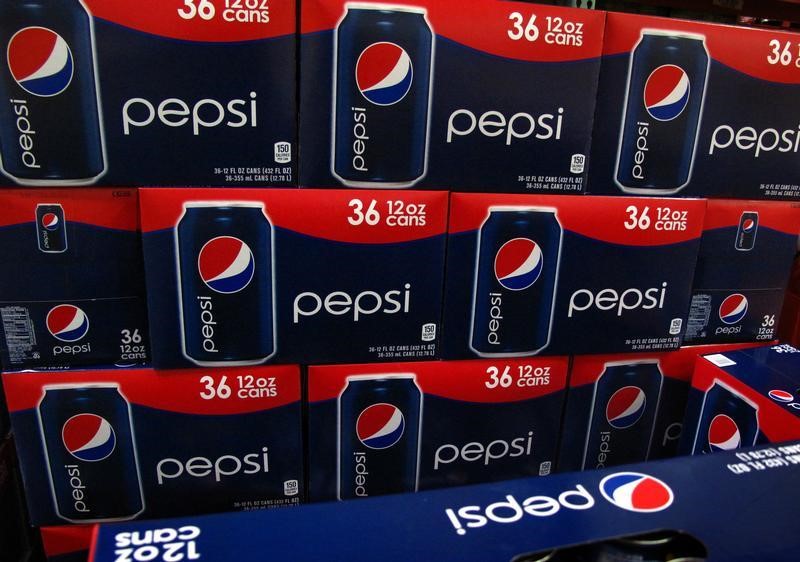By Sinead Carew
(Reuters) - PepsiCo Inc earnings could come under pressure in the fourth quarter due to currency fluctuations, investors said, as the company's biggest foreign markets - Russia, Mexico and Canada - have all taken hits to their currencies in recent months.
While international expansion has helped PepsiCo diversify, it has exposed it to broader economic problems and forex volatility, particularly as the U.S. dollar has risen rapidly.
"It probably will factor in to their earnings and it could cause some estimates to come down," said Lori Hudson, portfolio manager at Bahl & Gaynor Investment Counsel Inc in Cincinnati, which owned 900,000 PepsiCo shares at the end of September.
She added, however, that investors often shrug off earnings issues related to currency changes as they tend to be beyond a company's control. "They usually get a pass for that."
Russia accounts for 7.4 percent of PepsiCo's sales. Mexico is the next-largest international market, at 6.5 percent, according to Thomson Reuters data, and 4.8 percent of sales come from Canada.
All three have had their currencies drop sharply against the dollar, none more dramatically than the rouble, which has lost 36 percent of its value this quarter.
PepsiCo shares have been pressured of late, losing 7.6 percent in the last 11 trading days after hitting a record of more than $100 a share on Nov. 28. PepsiCo shares were up 0.2 percent at $92.76 on Wednesday morning.
PepsiCo said on Oct. 9 that it expects foreign exchange rates to take 4 percentage points off overall 2014 earnings and 3 percent off revenue. The company has not revised its guidance since and analyst estimates have changed little so far this quarter. It declined to comment when contacted by Reuters.
PepsiCo is expected to earn $1.09 per share in the fourth quarter on $19.9 billion in revenue, according to Thomson Reuters estimates.
Russia's rouble, which has been declining in value since June, has been crushed on the threats of more U.S. sanctions and the fall in oil. PepsiCo, which sells Frito-Lay snacks as well as beverage brands including Mountain Dew and Tropicana, expanded in Russia and became the country's biggest food and beverage producer when it bought juice and dairy maker Wimm-Bill-Dann in 2011.
Eric Schoenstein, co-portfolio manager of the Jensen Quality Growth Fund, which holds roughly 3 million shares in PepsiCo, described its Russian issues as a short-term dynamic that could present opportunities for long-term investors.
"It was a fairly attractive emerging market for them. It still can be but they have some structural issues to work out in the country. It remains to be seen how that plays out," said Schoenstein, whose company first invested in Pepsi in 2003.

The Canadian dollar has fallen nearly 4 percent against the U.S. dollar during the quarter and now trades at 1.1638 per dollar. The Mexican peso is off by 8.4 percent, with the dollar buying 14.65 pesos now, in a similar time frame.
(Reporting by Sinead Carew in New York; editing by Matthew Lewis)